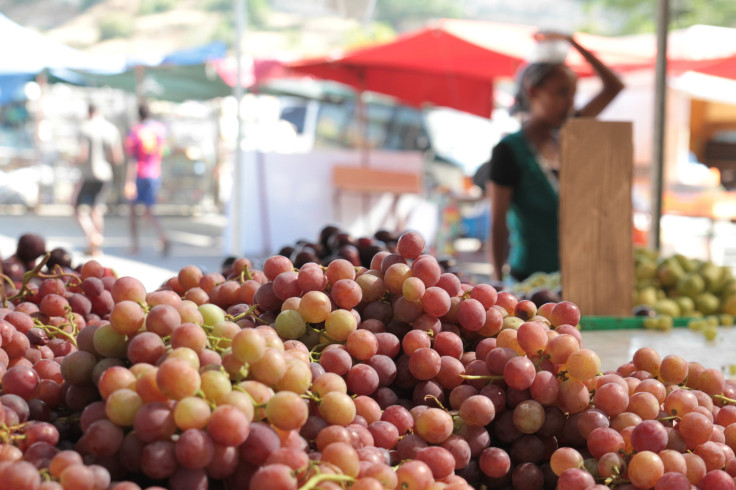Resveratrol In Red Grapes May Help Prevent Bowel Cancer, But Only In Small Doses

Grapes and red wine are full of healthy antioxidants, and in moderation they may help fight heart disease and inflammation. One particular chemical, resveratrol, has been studied extensively for its potential cancer-fighting properties; but until recently, researchers haven’t been able to fully pinpoint its benefits. A new study published in Science Translational Medicine finds that small doses of the chemical could prevent bowel cancer, compared to larger ones.
Resveratrol is found in red grapes and other plants, and it’s produced naturally when the plant is under attack by bacteria or fungi. Skins of grapes, blueberries, and raspberries all contain resveratrol; and by association, red wine does too. Past research on the health benefits of resveratrol for humans has been inconsistent in the past, with some studies showing it could prevent heart disease and cancer, while others claiming there’s little evidence for it. One recent study found that resveratrol could benefit cancer patients’ hearts.
But the new study reopens that question, focusing on smaller doses of the chemical rather than the larger ones used in past studies. The researchers tested the amount of resveratrol found in about one glass of wine on mice that were susceptible to bowel cancer, then compared it to the effects of doses 200 times higher. The mice given the smaller dose had a 50 percent reduction in tumor size compared to those given the bigger dose (who had about a 25 percent reduction in tumor size). Interestingly, however, this big gap was only seen in mice who were fed a high-fat diet.
“For the first time, we’re seeing that less resveratrol is more,” Karen Brown, professor of translational cancer research at the University of Leicester, said in the press release. “This study shows that low amounts may be better at preventing tumors than taking a high dose. The same might be true for other plant-derived chemicals and vitamins that are also being studied for cancer prevention.”
The authors conclude that while resveratrol might indeed have cancer-fighting properties, it might only work for people with specific genes, lifestyles, and diets. In addition, the results in mice still need to be replicated to humans.
Will drinking plenty of red wine or eating grapes lower your risk for cancer? Probably not, as the resveratrol used in these controlled studies is a purified version — and the verdict is still out as to whether it’s truly impactful. However, other research claims that it can reduce bad cholesterol, help prevent diabetes, and slow down the aging process.
“From energy drinks to supplements to skin serums, resveratrol has been sold to the public for myriad health benefits, most famously in the anti-aging arena,” the authors write. “In fact, at a posh wine, one might overhear a patron lamenting the small dose of resveratrol one receives in a glass of the red variety. [We] show that a low rather than a high dose of resveratrol prevents tumor growth in mice and alters metabolic pathways in human tissues.”
Source: Cai H, Scott E, Kholghi A, Andreadi C, Rufini A, Karmokar A. Cancer chemoprevention: Evidence of a nonlinear dose response for the protective effects of resveratrol in humans and mice. Science Translational Medicine. 2015.
Published by Medicaldaily.com



























